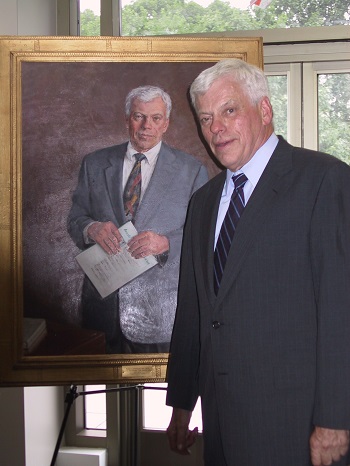Three keys for teaching: Think aloud, simplify, be kind
Three simple techniques can help teachers and mentors when they are working with students.
I teach trainees, but I also work with people who are becoming teachers or are stepping into new teaching roles, such as interns who are newly working with medical students, residents who are newly running teams, or junior faculty. The best advice I ever got about teaching in the clinical setting, I read on a wall at the Institute for Education and Research at Beth Israel Deaconess Medical Center. It comes from Daniel D. Federman, MD, MACP, the former dean for medical education at Harvard Medical School. (Editor's note: Dr. Federman died in 2017.) He said there are three key parts of clinical teaching: to think out loud, to stick to the basics, and to be kind.
As an internist and as a hospitalist, one of my key skills is the ability to think about how to approach and then manage a situation. That's a major part of what separates a novice internist and an expert internist. People get really intimidated when they think about having to teach. They think that teaching means “I have to give a chalk talk or a large lecture, or talk through a case and create a whole case scenario.” There's a lot of teaching you can do just by thinking out loud: explaining why you chose this dose of medication for this patient, why you decided to keep this patient for an extra day in the hospital, or why you decided to use the words that you did, or the turns of phrase that you did, when speaking with a colleague or a patient. We leave a lot of that [potential education] on the table when we don't talk through our thinking.
Next, stick to the basics. It can be really tempting when you're teaching or when you're working with trainees to try and tell them everything you know about a topic. There's a time and a place for that kind of teaching, but it's really important also to stick to the basics. Remember the fundamentals, whether it's taking a history, doing an exam, the basic presentation of certain diseases, or common approaches to common symptoms. It's also great to review. As a teacher, I learn so much whenever I work with medical students about really fundamental stuff. Each time, I'm learning more, to make myself a better doctor and a better teacher.
The third point is to be kind. This one seems pretty simple, but it's actually really important. First, it's essential to the learning environment. If you are not being kind, not getting an environment where everybody feels comfortable, then they're not going to feel comfortable when they have a question or when they don't know something, and when they need to know how to do something, they're not going to be comfortable asking. Being kind creates that learning environment that facilitates learning and facilitates retention. It also makes for a much better working environment. And that includes not just being kind to people, but also taking an interest in your learners as human beings. Ask them about their days, about their lives and their interests. That stuff is really important for creating connections within teams, which, incidentally, will help facilitate learning and teaching.
Medicine is really hard, and learning medicine is really hard. It's important that we try to create as positive and as supportive an environment as we can. Some of that is just being nice. Some of that is understanding that people will make mistakes, that there are things people don't know. The more you're open about those things, including when you don't know something, the more you're able to create an environment where people feel comfortable saying, “I don't know this” or “Can you show me how to do this?” or “I think I know how to do this, but I really could use your advice,” then the more people are going to want to work together to take care of the patient and to learn and to have fun.




